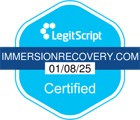Some people who struggle with alcohol use disorder may wonder if there is such a thing as drinking in moderation. Although total abstinence seems to be the only option in the recovery setting, is it possible for someone who has exhibited addictive behaviors and struggled with alcoholism to control their drinking through moderation?
There are three distinct categories of drinkers:
- Social drinkers exhibit low-risk patterns. According to the National Institute on Alcohol Abuse and Alcoholism, for women, low-risk drinking constitutes no more than seven drinks per week and no more than three drinks on any day. For men, it constitutes no more than 14 drinks per week and more than four drinks per day.
- Problem drinkers drink to the point where alcohol is affecting certain parts of their lives. A problem drinker may go out with the intention of having just one drink, which turns into many. Or, they may drink too much and miss work, class or an important event. Although the effects of their drinking are evident, the person isn’t entirely dependent on alcohol yet.
We Are Here For You
Let Us Help You Heal
Our detoxification experience is second to none.
Learn how we can help by speaking with one of our Treatment Advisors today.
- Alcoholics are physically and psychologically addicted to alcohol and its effects. Alcoholics drink frequently and continue to drink even after it has led to significant negative consequences, such as a DUI, getting fired from a job or the loss of meaningful relationships.
Problem drinkers would benefit from practicing complete abstinence from alcohol to live a more fulfilling, successful life. Alcoholics, however, have alcoholism. It’s a disease that must be addressed with proper treatment.
Our Treatment Services Include
Is It Really That Harmful to Have a Drink Every Once in a While?
Drinking alcohol in moderation is a method that is prone to failure. While you may think you’re in control, it’s easy to get burned. For a recovering alcoholic, just one drink is enough to send them relapsing back into alcoholism. An alcoholic already possesses addictive behaviors and tendencies, and one drink inhibits the brain signals that monitor our behaviors and emotions. While you may think you’ve made enough progress that you’re able to handle just one drink, your brain thinks otherwise.
A social drinker, or perhaps even a problem drinker, may decide that they don’t want to have a second or third drink. But an alcoholic does not have this kind of impulse control. One slip up can turn into a relapse.
You or someone you care about may believe that you can transition back into social drinking after having stayed sober for a certain length of time. However, for people who have a history of being unable to control the amount of alcohol they consume, it’s just not worth the risk.
Ready To Begin Your Treatment?
Let Us Help Your Family Heal
Our family therapy program is second to none.
Learn how we can help your family by calling a Treatment Advisor now.
If you are struggling with alcohol use disorder or are a recovering alcoholic struggling with the temptation to drink, Immersion Recovery Center can help. We can connect you with resources that will help you achieve and maintain lasting recovery, whether you have tried treatment before and been unsuccessful or are attempting treatment for the first time. Contact us at (888) 693-1604 for more information about our recovery programs or to verify your insurance benefits.
Reviewed for accuracy by :
Susan Shirley
LMHC
Serving as the Inpatient Clinical Director at Immersion Recovery Center, Susan will work directly with staff members, clients, and family members to ensure the clinical program remains as effective and individualized as possible. Susan is no stranger to the fields of behavioral health and addiction. She has over 25 years of experience, working in an inpatient setting, an outpatient setting, acute stabilization and nearly all other settings in the realm of addiction recovery.
Begin Healing Now!
Have A Call With One Of Our Treatment Advisors
Don’t Suffer Any Longer
























